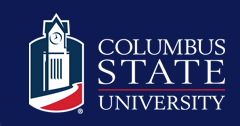The "Huggy Bear" Program: An Effective Means of Educating Teacher Education Candidates for Diversity
Abstract
The “Huggy Bear” program uses a triad approach that links university professors with supervising teachers and teacher candidates to develop effective strategies for mentoring atrisk students. The program is carried out at the primary school level with pupils who have been identified by their teachers as having some deficiencies in social and academic skills. Additionally, the program has a multicultural component. It offers college students the opportunity to work with pupils of different cultural and social economic backgrounds. The “Huggy Bear” program seeks to change how teacher candidates think about working with atrisk students and to provide them with the knowledge and skills necessary to effectively teach a diverse student population. Collaboration occurs at three levels, between the college instructor and the school administrators, between teacher candidates and their supervising teachers, and lastly, but most important, between teacher candidates and their mentees. The college students not only learn about multicultural issues in the classroom, but also simultaneously experience the testing of their knowledge, beliefs and principles.
This is an original work
1
This work has not been previously published
1
IRB approval verification
Yes
Recommended Citation
Coker-Kolo, D., & Kuforiji, P. (2004). The "Huggy Bear" Program: An Effective Means of Educating Teacher Education Candidates for Diversity. Perspectives In Learning, 5 (1). Retrieved from https://csuepress.columbusstate.edu/pil/vol5/iss1/6
Included in
Curriculum and Instruction Commons, Online and Distance Education Commons, Scholarship of Teaching and Learning Commons, Teacher Education and Professional Development Commons

